12 Social Work Books Every Practitioner Should Read
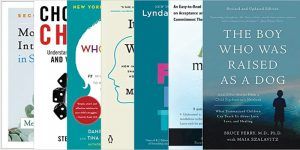 Social workers are tasked with helping survivors of childhood abuse, domestic violence, violent crime, disaster, war, and terrorism (Bride, 2007).
Social workers are tasked with helping survivors of childhood abuse, domestic violence, violent crime, disaster, war, and terrorism (Bride, 2007).
While this mission list appears daunting, social workers get it done every day.
It is critical that social workers remain up-to-date on current best practices to be most effective.
Here is a comprehensive list of books that would benefit every practitioner’s career and the clients with whom they work. Some of these books will reaffirm the basics, and others will get right down to the nitty-gritty. Some will bring positivity to your practice, while others will present an honest, no-fluff perspective. Enjoy!
Before you continue, we thought you might like to download our three Positive Psychology Exercises for free. These science-based exercises explore fundamental aspects of positive psychology, including strengths, values, and self-compassion, and will give you the tools to enhance the wellbeing of your clients, students, or employees.
This Article Contains:
- 1. The Body Keeps the Score: Brain, Mind, and Body in the Healing of Trauma
- 2. The Boy Who Was Raised as a Dog: And Other Stories From a Child Psychiatrist’s Notebook
- 3. Rising Strong: How the Ability to Reset Transforms the Way We Live, Love, Parent, and Lead
- 4. Daring Greatly: How the Courage to Be Vulnerable Transforms the Way We Live, Love, Parent, and Lead
- 5. Fish in a Tree
- 6. ACT Made Simple: An Easy-to-Read Primer on Acceptance and Commitment Therapy
- 7. The Whole-Brain Child: 12 Revolutionary Strategies to Nurture Your Child’s Developing Mind
- 8. It Didn’t Start With You: How Inherited Family Trauma Shapes Who We Are and How to End the Cycle
- 9. Motivational Interviewing in Social Work Practice
- 10. Wellness Recovery Action Plan
- 11. The Four Agreements: A Practical Guide to Personal Freedom
- 12. Manage My Addiction: What I Wish I’d Learned in School About Substance Use Disorder and Addiction Recovery
- PositivePsychology.com’s Helpful Resources
- A Take-Home Message
- References
1. The Body Keeps the Score: Brain, Mind, and Body in the Healing of Trauma – Bessel van der Kolk
Children face unprecedented burdens in today’s society, and adverse childhood experiences (ACEs), which result in long-term negative effects, are a serious threat to our youth (Finkelhor, 2020).
As a social worker, working with clients who have experienced identified ACEs is inevitable.
This book will help you understand the impact of trauma on brain development and attachment systems using powerful case histories. Van der Kolk, who is an expert in the field of trauma, explains the physical and emotional effects of trauma and the plasticity of the brain.
Treatments for the effects of trauma explored by Van der Kolk include neurofeedback, meditation, sports, drama, and yoga. This book is as empowering as it is informative and will inspire healing.
Find the book on Amazon.
6 Ways to heal trauma without medication – Big Think
2. The Boy Who Was Raised as a Dog: And Other Stories From a Child Psychiatrist’s Notebook – Bruce Perry and Maia Szalavitz
Approximately half of the children of the world, or over one billion, are exposed to violence every year, and three in four children aged 2–4 regularly suffer physical punishment and/or psychological violence at the hands of parents and caregivers (World Health Organization, 2020a, 2020b).
The World Health Organization (2020b) reports that 1 in 5 women and 1 in 13 men report having survived sexual abuse as a child. How are children’s minds affected by trauma, and how can they recover?
An esteemed psychiatrist explains the brain’s malleable capabilities and how children can cope with trauma. Perry incorporates fascinating real-life experiences of children who have undergone extreme stresses and the practices that enabled them to overcome.
Children are not too young to remember, nor are they too young to understand. This book is a must-have for any professional who works with children who have experienced trauma.
Find the book on Amazon.
3. Rising Strong: How the Ability to Reset Transforms the Way We Live, Love, Parent, and Lead – Brené Brown
Brené Brown is one of the most acknowledged authors when consulting with practicing social workers; you will see two of her many books on this list.
Not only is Brené Brown a licensed master social worker, she also holds a PhD. As a social scientist, Brown has studied courage, vulnerability, shame, and empathy for over a decade.
As a self-improvement book, Rising Strong highlights the importance of vulnerability and authenticity.
Brown considers the experiences of leaders in Fortune 500 companies, military personnel, artists, couples in long-term relationships, teachers, and parents to form research-driven theories involving accepting emotions and becoming comfortable with discomfort.
This book is ideal for anyone, including social workers and their clients, who may be struggling and need a little motivation to rise above and become even greater.
Find the book on Amazon.
4. Daring Greatly: How the Courage to Be Vulnerable Transforms the Way We Live, Love, Parent, and Lead – Brené Brown
Like Rising Strong, Daring Greatly is also a #1 New York Times bestseller.
Brown argues that vulnerability is not a weakness; it is instead a measure of courage. The practice of daring greatly encourages individuals to take risks, make themselves vulnerable, and “put themselves out there.”
While creating a feeling of vulnerability, developing courage will ultimately transform your life.
This book is just a taste of the training and certification program designed for helping professionals and offered by Brené Brown’s The Daring Way. Reading this book would enhance any practitioner’s self-help and leadership skills.
Find the book on Amazon.
5. Fish in a Tree – Lynda Mullaly Hunt
“Everybody is a genius. But if you judge a fish by its ability to climb a tree, it will live its whole life believing that it is stupid.”
Aesop, Jr, 1899, p. 235
Ideal for any school-based social worker or social worker who works with school-aged children, this elevating and impactful book chronicles the struggles of an elementary student who can distract teachers and classmates from her academic struggles.
The student, who is found to have dyslexia, is positively impacted by a teacher who is able to see beyond her playful behavior and teach her that not everyone thinks alike. Hunt also offers a website where interested readers can view the book trailer or read the first chapter.
Find the book on Amazon.
6. ACT Made Simple: An Easy-to-Read Primer on Acceptance and Commitment Therapy – Russ Harris
Acceptance and Commitment Therapy (ACT) is a cutting-edge psychological therapy that encourages psychological flexibility through six processes: acceptance, contact with the present moment, self as context, cognitive defusion, committed action, and values (Bai, Luo, Zhang, Wu, & Chi, 2020).
This type of therapy is ideal when working with clients in the field of social work. To get acquainted with ACT, practitioners will want to refer to this resource.
ACT enacts mindfulness, client values, and a commitment to change to treat depression, anxiety, stress, addiction, eating disorders, schizophrenia, borderline personality disorder, and other psychological issues.
ACT Made Simple presents the six ACT processes in an easy-to-understand manner and includes innovative tools, techniques, and strategies for promoting change. This book also includes scripts, exercises, metaphors, and worksheets to use with clients; a session-by-session guide to implementing ACT; and transcripts from therapy sessions.
Also included are guidelines for creating your own therapeutic techniques and exercises and tips to overcome therapy barriers. This functional resource is suggested for practitioners who are just beginning to implement ACT and experienced ACT therapists alike. After reading this book, a practitioner new to ACT will be able to successfully implement the processes with their clients.
Find the book on Amazon.
7. The Whole-Brain Child: 12 Revolutionary Strategies to Nurture Your Child’s Developing Mind – Daniel J. Siegel and Tina Payne Bryson
Also a New York Times bestseller, The Whole-Brain Child is written by a neuropsychiatrist and parenting expert.
This empirical book presents 12 approaches to foster healthy brain development, leading to calmer, happier children.
The book explains the parts and functions of the brain, day-to-day difficulties, and the effective strategies that could help to mitigate struggles.
Ultimately, the goal of this resource is to promote the healthy emotional and intellectual development of the child.
Find the book on Amazon.
8. It Didn’t Start With You: How Inherited Family Trauma Shapes Who We Are and How to End the Cycle – Mark Wolynn
While many people experience anxiety, obsessive thoughts, depression, chronic pain, and phobias, do we truly understand where these challenges originate?
Wolynn asserts that these difficulties may not result from our immediate life experiences or current chemical imbalances in our brain. Instead, these traumatic legacies can be passed down by parents, grandparents, and great-grandparents who have experienced trauma.
This is referred to as inherited family trauma or secondary post-traumatic stress disorder. While seemingly obscure, individuals who experience intense trauma have the potential to pass the effects of that trauma on to those around them, including on to next generations (Beckerman & Sarracco, 2019).
Wolynn shares the methods to unveil and identify these emotional legacies, as well as resolve this secondary trauma by creating new neural pathways.
Find the book on Amazon.
9. Motivational Interviewing in Social Work Practice – Melinda Hohman
Motivational interviewing (MI) is a research-based counseling technique that involves a nonjudgmental partnership between the client and practitioner. It is based on the foundation of Carl Rogers’s person-centered counseling approach (Bell & Roomaney, 2020).
MI has profound practical and effective applications in the field of social work. By detailing case scenarios and presenting example dialogues, this text helps social workers generate motivational interviewing skills to help build their practice.
Other highlights of this book include content that is explicitly linked to the Council on Social Work Education’s Educational Policy and Accreditation Standards and the Grand Challenges for Social Work. The “Voices from the Field” boxes are a pedagogical feature written by social workers in a variety of roles that demonstrate motivational interviewing’s application in social work.
Find the book on Amazon.
10. Wellness Recovery Action Plan – Human Potential Press
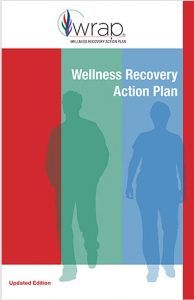
As a research-based practice, WRAP has been proven to increase hopefulness, improve quality of life, increase people’s ability to self-advocate, increase feelings of empowerment, reduce the need to use healthcare services over time, and improve recovery outcomes for clients.
This resource is an update to the “Red Book” practitioners may be familiar with. The updates in this useful text include the addition of two new chapters, changes to the wellness toolbox and daily plan, the use of trauma-informed language, updates to stressors (formerly “triggers”), and an expansion of the crisis plan information. This helpful guide also features new appendices and an enhanced design and layout.
Find the book on the Wellness Recovery Action Plan website.
11. The Four Agreements: A Practical Guide to Personal Freedom – Don Miguel Ruiz
Happiness is an aspect of subjective wellbeing that is often a life goal for many (Medvedev & Landhuis, 2018).
Be impeccable with your word.
Don’t take anything personally.
Don’t make assumptions.
Always do your best.
These are the four agreements that Ruiz contends will drastically enhance the amount of happiness people experience. Based on the spiritual beliefs held by the ancient Toltec people, the author states that individuals act on agreements they make.
Sometimes these agreements are made with themself, with others, with their god, or with life itself. Sometimes these agreements are beneficial, while other times they originate from a place of fear and are detrimental to happiness. The code of conduct presented in this book will support individuals in refraining from self-limiting beliefs.
Find the book on Amazon.
12. Manage My Addiction: What I Wish I’d Learned in School About Substance Use Disorder and Addiction Recovery – Kenneth Martz
It comes as no surprise that the COVID-19 pandemic has resulted in limited access to mutual self-help groups for individuals with substance abuse disorders (Liese & Monley, 2021).
With decades of experience in the field of addiction, Dr. Kenneth Martz uses takeaway messages and inspiring quotations to inform and guide the reader to make the necessary life changes for a healthier life that is free of addiction.
Martz describes how the brain works and how to take control of it; the stages of addiction and implications of each; understanding our “why” and how to use it; and the five key approaches to make lasting change in our insight, vision, emotions, beliefs, and values.
The book also includes special sections on trauma, goal setting, and cross-addictions, as well as guidance on how to find a counselor who is a good fit. Drkenmartz.com contains free addiction, emotion, and meditation resources, as well as training videos.
Find the book on Amazon.
PositivePsychology.com’s Helpful Resources
If you are reading this and think that social work is a career you would be interested in, or you would like to pursue a graduate degree in social work, please see our Social Work Training: Top 25+ Courses, Degrees, & Online Options to learn more about the requirements and top educational institutions.
35+ Essential Skills & Values of Good Social Workers would be an excellent resource to review the various qualities held by effective social workers. This article also includes 10 clinical skills to put into practice. Likewise, 13 Social Work Methods and Interventions for Helping Others encompasses various social work methods and interventions beneficial for practice.
If you are interested in some theories that drive social work practices, you may want to check out our 10 Fascinating Social Work Theories & Models. The article explains topics such as motivational theory, anti-oppressive practice, attachment theory, the narrative model, and solution-focused therapy.
As a social worker, you undoubtedly experience stress, especially secondary trauma. You must first take care of yourself before taking care of others in order to be most effective. 10 Self-Care Tips for Psychologists, Therapists, and Counselors is an excellent resource to prevent job stress and burnout.
Using the Self-Care Check-In worksheet coupled with the My Self-Care Promise worksheet could help a busy social worker cope with the demands of the career.
If you’re looking for more science-based ways to help others enhance their wellbeing, this signature collection contains 17 validated positive psychology tools for practitioners. Use them to help others flourish and thrive.
A Take-Home Message
Service, social justice, dignity and worth of the person, the importance of human relationships, integrity, and competence (National Association of Social Workers, 2017) – these are the social work values that drive the profession.
Social workers are entrusted to assist individuals, families, and groups to improve their capacity to meet their personal and social needs.
These helpers of society may work in mental health clinics, schools, child welfare and human service agencies, hospitals, settlement houses, community development corporations, and private practices (Bureau of Labor Statistics, 2021). It is imperative to remain current in this consequential and challenging career.
In one of my consultations, a social worker explained that what most helps her to be the best practitioner she can be is using her own personal growth and development. She passes her personal experiences down to her clients in her practices. As I am sure this is the case for many professionals in this field, the books encompassed in this list will pad any social worker’s tool belt.
This same social worker noted that many of these books are written as a healing process and have also been derived from first-hand experiences. The authors are not just scholars of their field; they often have an actual understanding that benefits the reader.
While these books may be beneficial for personal and professional growth as a social worker, many of these books can be shared with the clients you serve or with other service providers.
We truly hope that one or more of these books will help enhance your social work practice or, at the very least, serve as motivation for you to be the best practitioner you can be for your clients.
Don’t forget to download our three Positive Psychology Exercises for free.
- Aesop, Jr. (1899). An educational allegory. Journal of Education, 14, 235–235.
- Afzal, T., Ahmed, K. B., & Perveen, A. (2020). Impact of the wellness recovery action plan (WRAP) on the psychiatric patient with symptoms of psychosis. Evaluation Studies in Social Sciences, 9(2), 25–30.
- Bai, Z., Luo, S., Zhang, L., Wu, S., & Chi, I. (2020). Acceptance and commitment therapy (ACT) to reduce depression: A systematic review and meta-analysis. Journal of Affective Disorders, 260, 728–737.
- Beckerman, N. L., & Sarracco, M. (2019). The legacy of inherited trauma: Case studies. Journal of Anxiety & Depression, 2(1), 113–123.
- Bell, D. L., & Roomaney, R. (2020). Exploring the barriers that prevent practitioners from implementing motivational interviewing in their work with clients. Social Work, 56(4), 416–429.
- Bride, B. E. (2007). Prevalence of secondary traumatic stress among social workers. Social Work, 52(1), 63–70.
- Brown, B. (2012). Daring greatly: How the courage to be vulnerable transforms the way we live, love, parent, and lead. Avery.
- Brown, B. (2015). Rising strong: How the ability to reset transforms the way we live, love, parent, and lead. Random House.
- Bureau of Labor Statistics, U.S. Department of Labor. (2021, April 9). Occupational outlook handbook: Social workers. Retrieved July 17, 2021, from https://www.bls.gov/ooh/community-and-social-service/social-workers.htm
- Finkelhor, D. (2020). Trends in adverse childhood experiences (ACEs) in the United States. Child Abuse & Neglect, 108, 104641.
- Harris, R. (2009). ACT made simple: An easy-to-read primer on acceptance and commitment therapy. New Harbinger.
- Hohman, M. (2021). Motivational interviewing in social work practice. (2nd ed.). Guilford Press.
- Hunt, L. M. (2017). Fish in a tree. Puffin Books.
- Liese, B. S., & Monley, C. M. (2021). Providing addiction services during a pandemic: Lessons learned from COVID-19. Journal of Substance Abuse Treatment, 120, 108156.
- Martz, K. (2021). Manage my addiction: What I wish I’d learned in school about substance use disorder and addiction recovery. Author.
- Medvedev, O. N., & Landhuis, C. E. (2018). Exploring constructs of well-being, happiness and quality of life. PeerJ, 6, e4903.
- National Association of Social Workers. (2017). NASW code of ethics. Author.
- Perry, B. D., & Szalavitz, M. (2017). The boy who was raised as a dog: And other stories from a child psychiatrist’s notebook. Basic Books.
- Ruiz, D. M. (2018). The four agreements: A practical guide to personal freedom. Amber-Allen.
- Siegel, D. J., & Bryson, T. P. (2012). The whole-brain child: 12 revolutionary strategies to nurture your child’s developing mind. Bantam.
- van der Kolk, B. (2015). The body keeps the score: Brain, mind, and body in the healing of trauma. Penguin Books.
- Wellness Recovery Action Plan. (2018). Wellness recovery action plan. Human Potential Press.
- Wolynn, M. (2017). It didn’t start with you: How inherited family trauma shapes who we are and how to end the cycle. Penguin Life.
- World Health Organization. (2020a, November 19). Children: New threats to health. Retrieved July 27, 2021, from https://www.who.int/news-room/fact-sheets/detail/children-new-threats-to-health
- World Health Organization. (2020b, June 8). Child maltreatment. Retrieved on July 27, 2021, from https://www.who.int/news-room/fact-sheets/detail/child-maltreatment
Let us know your thoughts
Read other articles by their category
- Body & Brain (50)
- Coaching & Application (57)
- Compassion (26)
- Counseling (51)
- Emotional Intelligence (24)
- Gratitude (18)
- Grief & Bereavement (21)
- Happiness & SWB (40)
- Meaning & Values (26)
- Meditation (20)
- Mindfulness (45)
- Motivation & Goals (45)
- Optimism & Mindset (34)
- Positive CBT (29)
- Positive Communication (20)
- Positive Education (47)
- Positive Emotions (33)
- Positive Leadership (18)
- Positive Parenting (4)
- Positive Psychology (33)
- Positive Workplace (37)
- Productivity (17)
- Relationships (46)
- Resilience & Coping (38)
- Self Awareness (21)
- Self Esteem (38)
- Strengths & Virtues (32)
- Stress & Burnout Prevention (34)
- Theory & Books (46)
- Therapy Exercises (37)
- Types of Therapy (64)
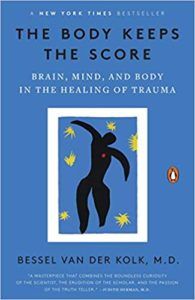
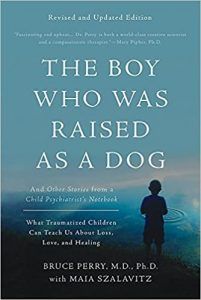
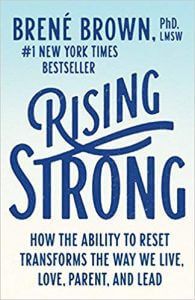
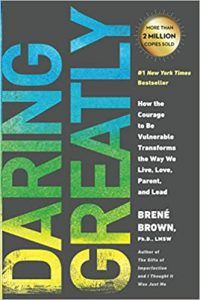
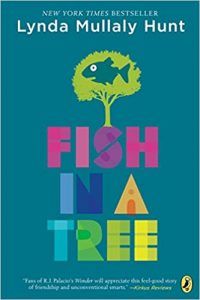

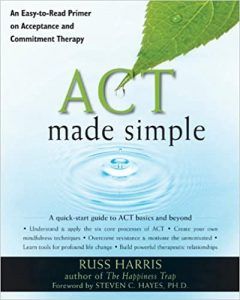
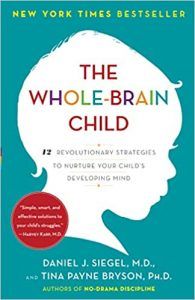
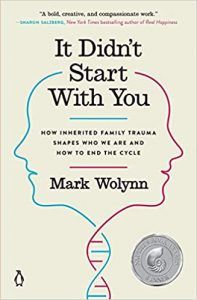
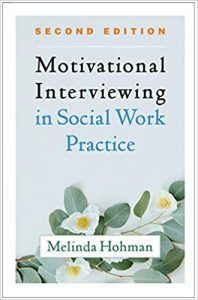

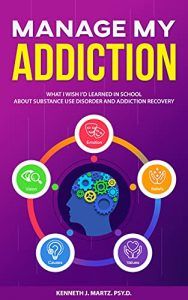
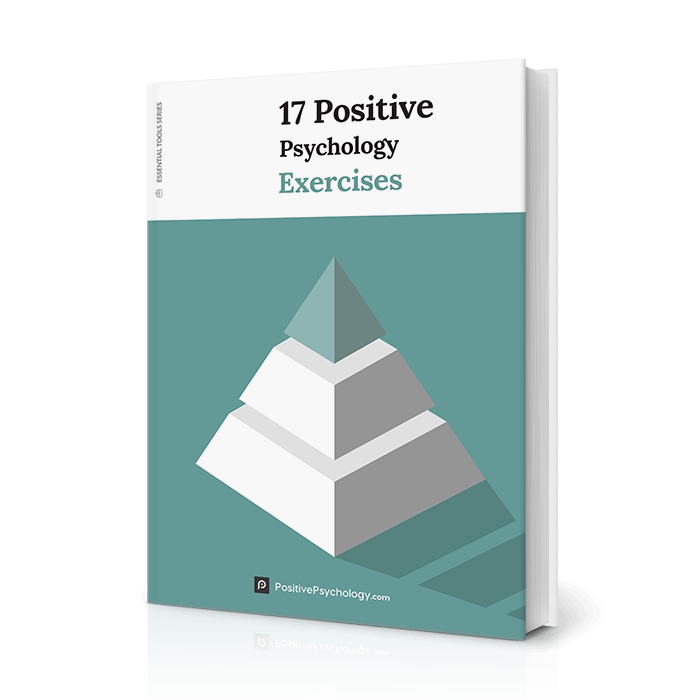




What our readers think
am really enjoying to read this book of social work ,am looking this book for the sack of having it to be my own.
i am a practicing social worker in Africa and i was greatly guided by this article.
Thank you.